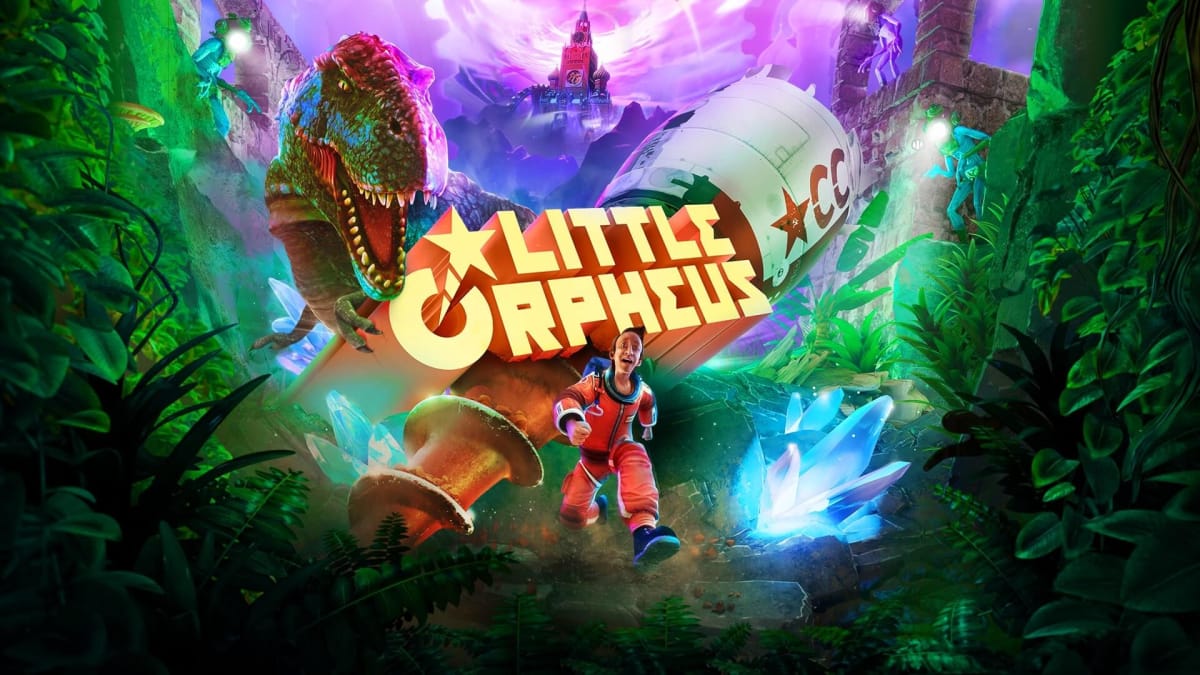If you told me a decade ago that developer The Chinese Room would put their creative efforts towards a 2.5D platformer capturing the tone of old-timey adventure serials I wouldn't believe you. Leaving behind the melancholic "walking sim" roots for something more traditional didn't seem like it was in their DNA. Considering my dislike for their previous creative aspirations, displayed in Dear Esther and Everybody's Gone To The Rapture, this change of pace sounded great. While this team's better qualities carry over, their first small step in a traditional genre is lacking compared to the plethora of competition.
The year is 1962 and the USSR is more interested in The Inner Earth, rather than space. Enter Comrade Ivan Ivanovich: Soviet cosmonaut tasked in proving the Hollow Earth theory with his atomic-bomb-powered capsule, "Little Orpheus." Three years later and previously presumed dead, Ivan returns all by his lonesome and nothing to show for his adventures. But that doesn't perturb him from regaling his domineering interrogator, General Yurkovoi, about the wondrous sights and lengths he went to save the world. But did this actually happen or is it just mendacious storytelling to avoid the firing squad?
Tall, Lanky Tales
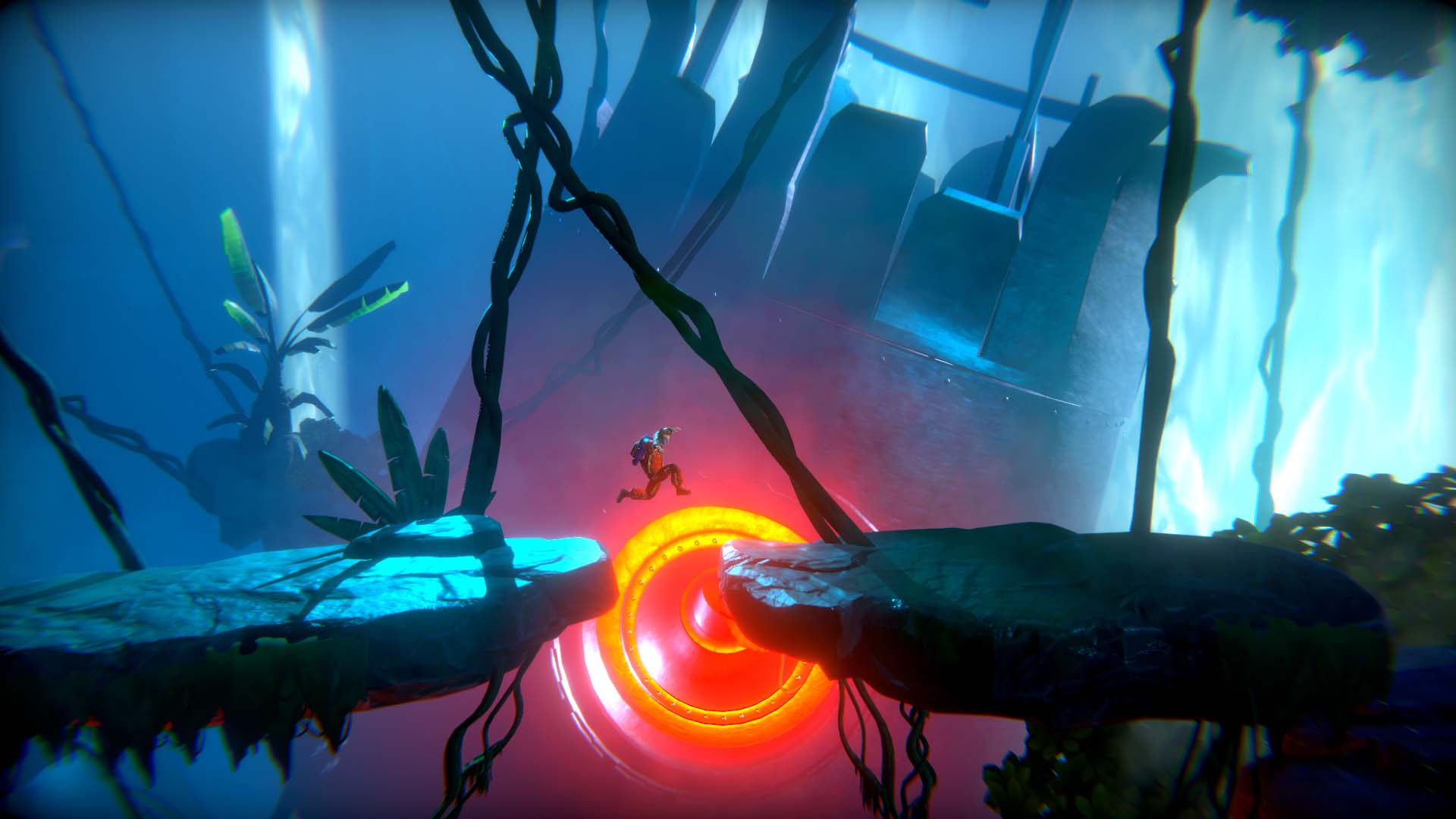
One of Orpheus' biggest draws is the contrasts baked into its story. First, the disparity between monochromatic TV screens recording both people in the present and the Technicolor environs Ivan recounts. Second, the dynamic between Ivan and the General is visually interesting: the gangly, hobbledehoy cosmonaut who was tasked with this mission by a fluke and the hard-nosed military leader who's after his bomb play off each other; plus, their dialogue casually reminds us of the stakes. Finally, how the unreliable narrator trope is utilized and potentially subverted is also an inspired touch.
Given the highfalutin verbiage -- dare I say navel-gazing? -- I typically associate with this team’s past work, I was taken by surprise here. Ivan's verbosity along with incorporated Russian folklore, Russian history, and his communist leanings feel organic to his character. In a weird way, his roundabout method of storytelling compliments the excited pacing of adventure serials. Similar to Edgar Rice Burroughs or Jules Verne, the dedication to add extra minutiae, like nuanced world-building or layering in Russian phrases and words, helps it stand out from being another formulaic adventure.
Despite comparing it to such venerated authors, the story’s structure leaves a bit too be desired. After the first third of the game, you can already sense the plot spinning its wheels. Granted, there is some humor fashioned into Ivan getting so sidetracked, but when tied with the repetitive game design it gets draining after a while. What’s worse: these “conveniences” eventually culminate in a disappointing payoff (one of the most crucial aspects in adventure serials).
It's hard to say if this story would've landed as well without this voice talent though; fortunately, that's not a worry here. Gunnar Cauthery (Ivan) and Paul Herzberg (General) nail their respective roles, with Cauthery in particular handedly transitioning between heavily-accented English to Russian with ease. Given how Orpheus initially launched on Apple Arcade/iOS, the bite-sized episodic structure with an enthusiastic narrator capping off each chapter works in its favor too. All in all, this vintage adventure has some issues, but it’s elevated to a pleasant romp thanks to its flavorful prose and nuanced presentation gimmicks.
The Road Most Traveled By
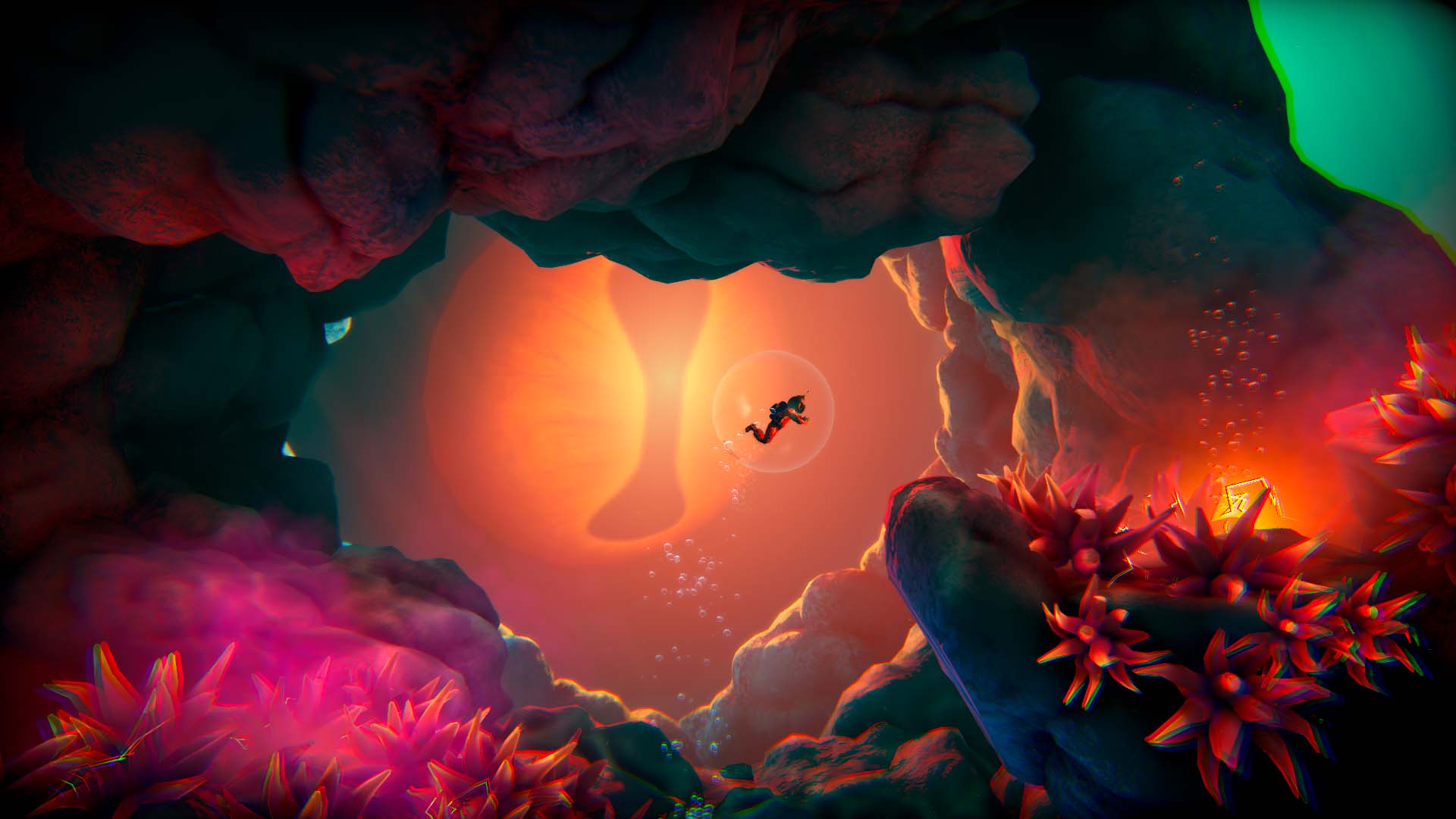
In contrast, Orpheus' gameplay provides less nourishment than a Soviet breadline. Given that it's a 2.5D side-scrolling platformer, you can already make safe assumptions about what it all curtails: going left or right, jumping, crouching, and interacting with specific objects. If you've played any recent narrative-driven platformers (a la Playdead's catalogue) you'll get the gist of its simplicity. The problem is the best examples show streamlined mechanics doesn't mean overly-simplistic design. With Orpheus, I'm struggling to remember more than two segments that supplied a modest sense of challenge. Aside from an epilogue SHMUP section, it's hard to think of anything beyond the generic puzzle-platforming, vine-swinging, box moving, sneaking, chase segments, and quick-time events. The vast majority are so basic and dull that my mind flushed them out upon completion, like the details you forget during your morning commute.
What harms it further is the lack of tangible atmosphere and polish compared to its better contemporaries. Even a B-tier example of Playdead's template like Stela, which has its own faults, still makes you feel subsumed in that world. Orpheus literally takes places within a fantastical Hollow Earth, yet I don't consistently feel that kind of matching atmosphere. The Chinese Room also show elementary mistakes with regards to 2.5D level design; sometimes there's visual confusion between hazards within the foreground or background. There are also weird little under-polished aspects like sometimes having to re-jump when standing on a platform's edge or having to hit the interact button several times for actions to register. A bunch of little papercuts to an already-stale formula.
A personal confession: I was tired when playing through parts of this game. I've rarely -- if ever -- genuinely fallen asleep with a controller in hand. Orpheus' somnolent design broke that streak for me. It may have a couple fun scenarios, but they all play like the same 'ole song and dance. Although maintaining a similar breezy ethos as The Artful Escape, it doesn’t have the same amount of subtle tricks to feel mechanically worthwhile. Sadly, it’s easier to appreciate its better qualities the further I’m looking in the rearview mirror.
Looks & Sounds Like A Filthy Capitalist Production
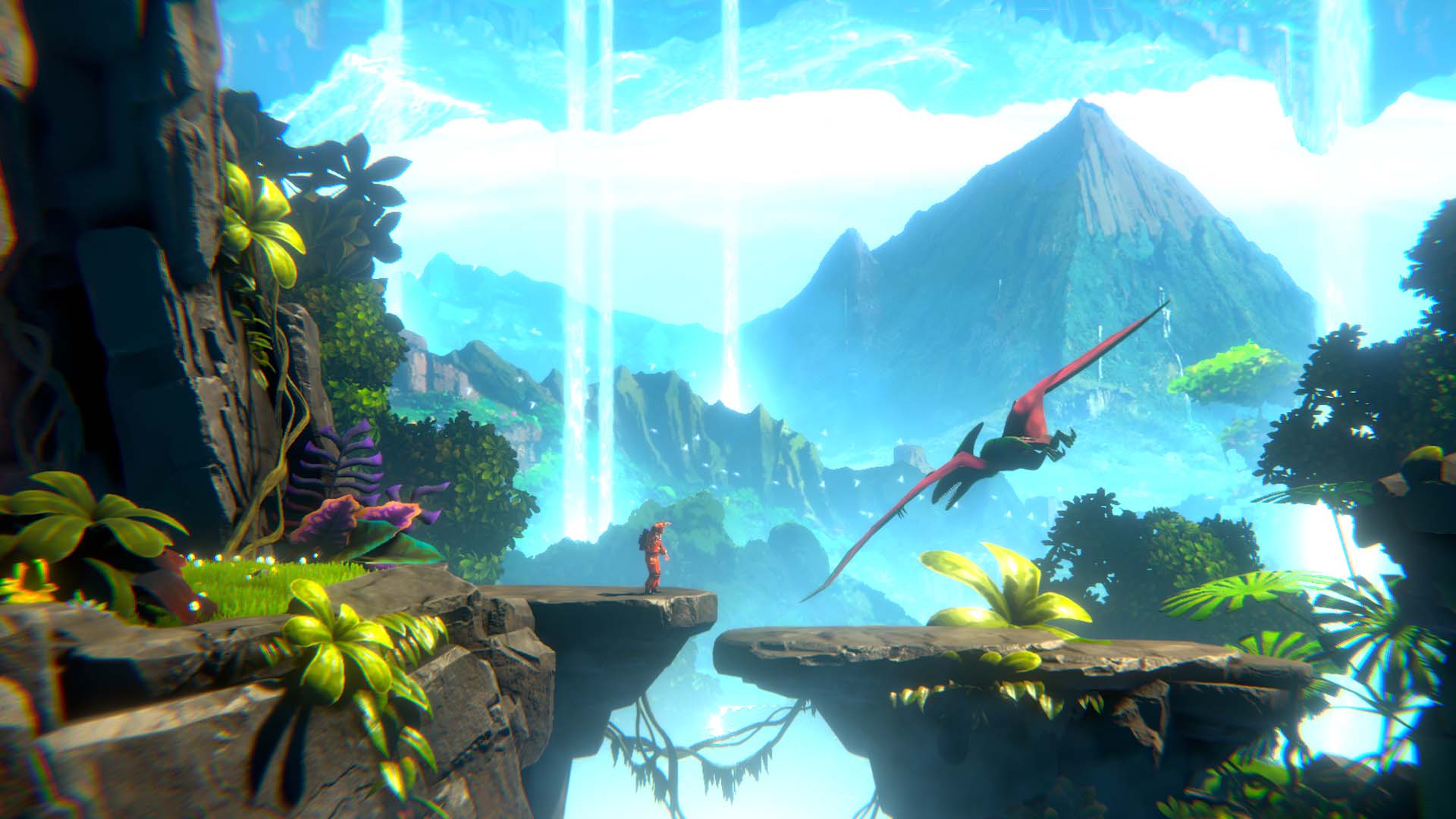
As appalling as the mechanical variety may be, the environments don't suffer that fate. The episodic format acts as a transition to each new locale, be it a lush jungle, desolate city with magical gemstones, or thousands of leagues under the sea. Given the amazing results something like Narita Boy can achieve with Unity Engine, Orpheus likely won't blow you away; still, it's a solid effort. I also like the inspired protagonist choice in Ivan; his pencil-necked, dopey look works like a Russian Mr. Bean.
Similar to the visuals, the lively soundtrack by composers Jessica Curry and Jim Fowler hit the appropriate beats, but don’t take any risks. It's certainly competent and oftentimes captures its whimsical tone, but I still rank this lower down on this team’s list. Sound design hits all the notes you'd expect too. My one key annoyance was random audio drops during particular action scenes or when clambering up specific platforms. None of these technical distractions are game-breaking, but they do feed back to my previous polish critiques.
I'm of two minds with regards to value. My basic playthrough, with some casual exploring, was in the ballpark of 3 hours; quite basic for its asking price. What got to me was its replay incentives: upon completing said episode, you can go back and collect glowing orbs to unlock new costumes. As if pushing through the generic routine wasn't enough the first time.
There Are Better Options, Comrades!
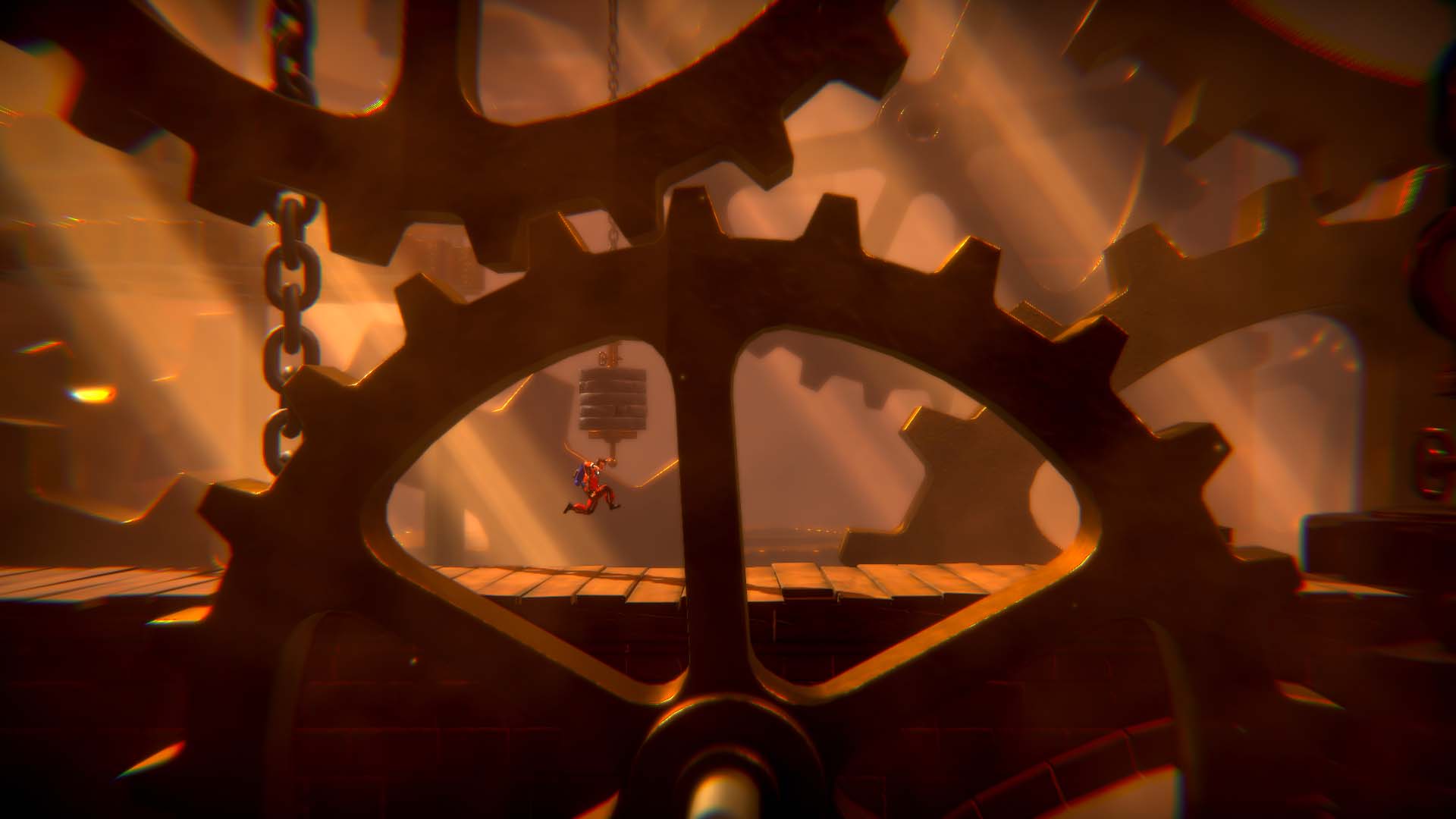
Despite branching out to a traditional genre, the chief concern with The Chinese Room's latest is gameplay yet again. Instead of getting into an argument about "walking sims" or what a game truly is this time, Little Orpheus is a case of solid audio/visual chops and a fun Cold War-era yarn weighed down by the continuous tedium of an unadventurous platformer.
TechRaptor reviewed Little Orpheus on Xbox Series X using a copy provided by the publisher. The game is also available on PC, PlayStation 4, PlayStation 5, Xbox One, Nintendo Switch, and iOS.
Review Summary
Pros
- A Pleasantly-Written Adventure Serial
- Lovely Scenery
- Fitting Soundtrack
Cons
- Mostly Boring, Unchallenging Gameplay
- Repetition Baked Into Story & Game Design
- Some Annoying Bugs (Gameplay & Audio)
Have a tip, or want to point out something we missed? Leave a Comment or e-mail us at tips@techraptor.net
